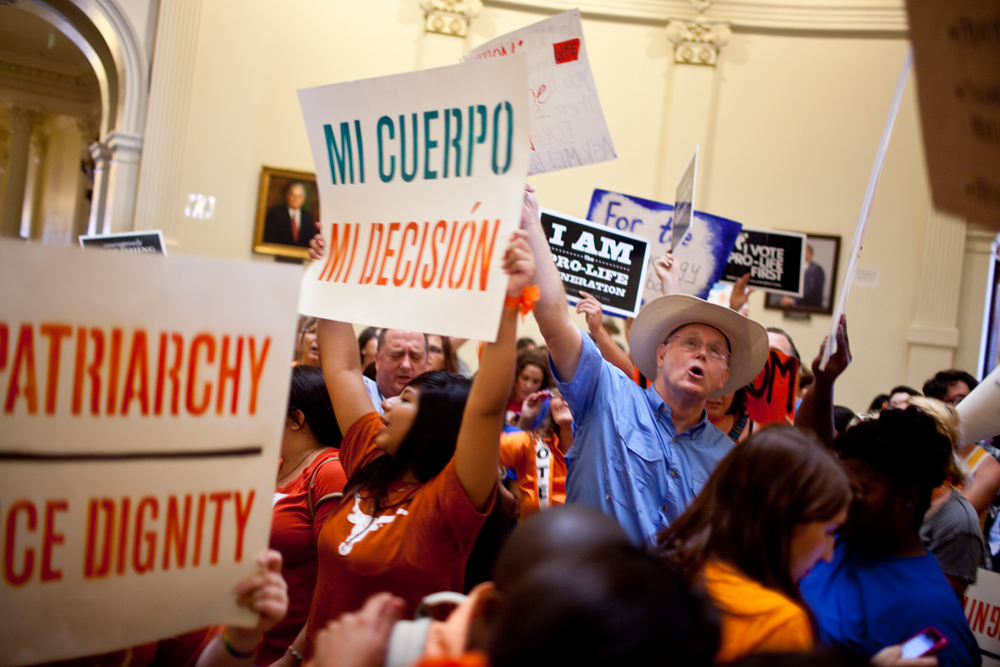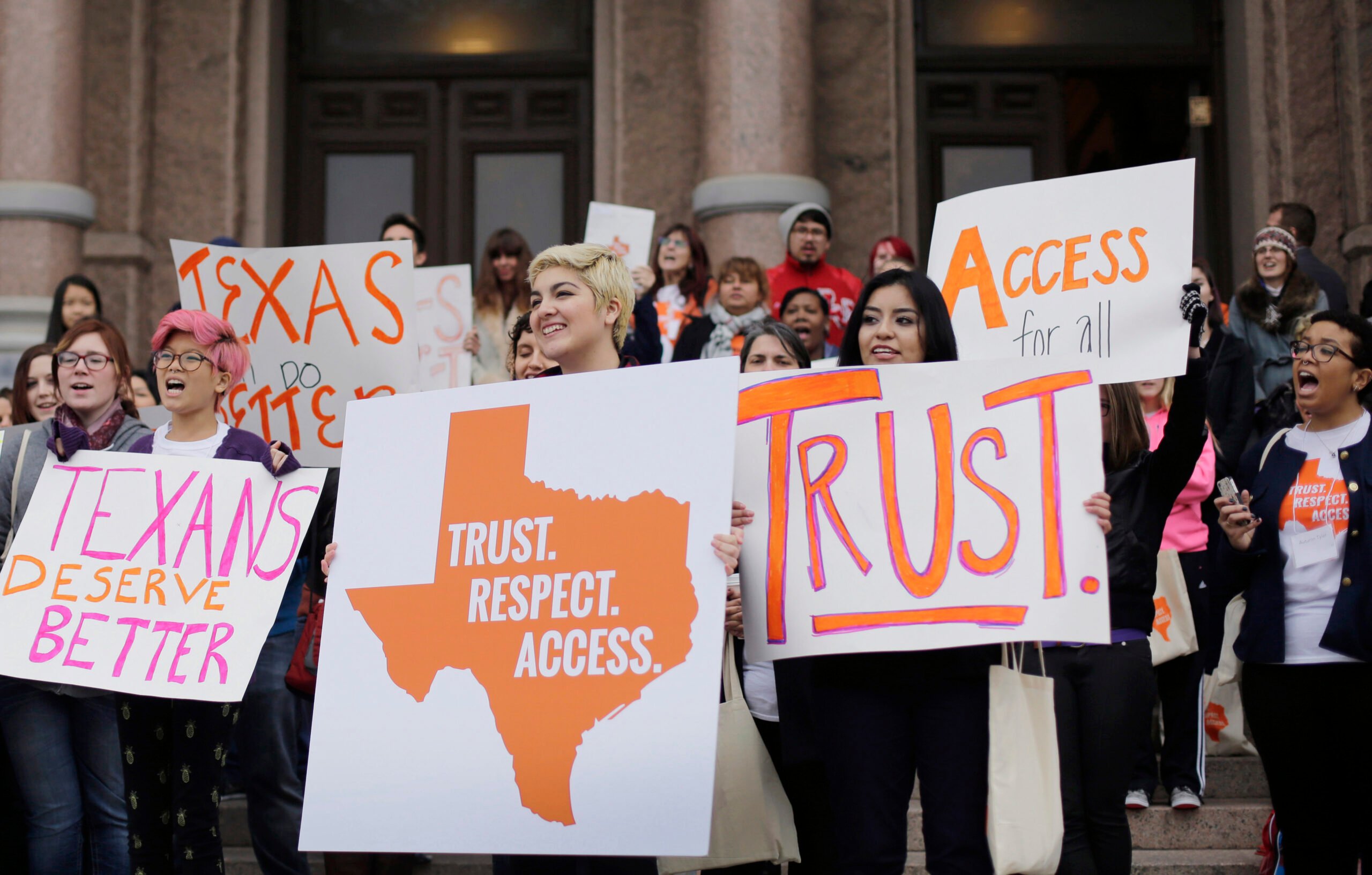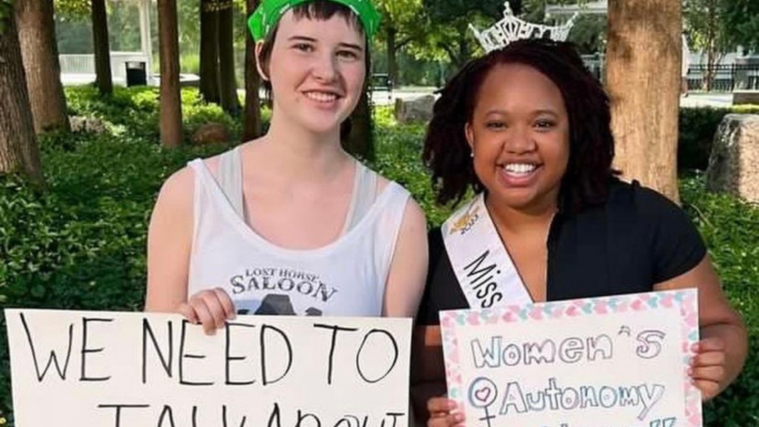
An Abortion Option Returns to El Paso After Long Legal Battle

Above: Texas’ omnibus anti-abortion law, passed after weeks of protest in 2013, shuttered El Paso’s Reproductive Services. Now, they’ll reopen to provide abortion and gynecological care.
For the last 17 months, West Texans seeking abortion services have had two options: travel hundreds of miles to a San Antonio clinic, or cross the state line into New Mexico for the procedure.
Now, after a prolonged legal and bureaucratic battle over provisions of Texas’ omnibus anti-abortion law, an El Paso abortion clinic has reopened and will provide abortion and other reproductive health services beginning next week.
Reproductive Services closed in April 2014 after its physician lost her admitting privileges at a local hospital, one of the new requirements under House Bill 2, the omnibus law passed in 2013. That restriction, plus another that mandates Texas abortion clinics make expensive modifications to their facilities to in order to operate as ambulatory surgical centers, is at the heart of an ongoing legal challenge to the constitutionality of the law. Reproductive Services is one of several independent abortion providers suing the state.
Alyssah Roth, board president of the nascent West Fund, which provides financial assistance to West Texans seeking abortions, said the clinic’s reopening means West Texans won’t have to leave the state for care. She said patients who call her organization’s hotline have so far predominantly gone to the newly opened Whole Woman’s Health in Las Cruces, New Mexico, for their abortions.
While attorneys for the state have argued that going to New Mexico is an acceptable option for West Texans, and thereby maintain that the law does not create significant obstacles to accessing care, plaintiffs say that that forcing women to travel for an abortion services creates an undue burden by adding practical and logistical barriers such as transportation costs and child care expenses.
“Even though [Las Cruces] is only half an hour away, some people still don’t have cars, or have time to take off work,” Roth said. “Some people can’t leave Texas.”
In addition to abortion care, Reproductive Services will provide family planning, contraception and gynecological care. Historically, the clinic has served approximately 2,000 patients per year.
“[Reproductive Services] will be more a low-cost facility where people can go … versus a primary care doctor,” Roth said.
Two years’ worth of legal back-and-forth over HB 2 has put abortion access across Texas in limbo. Since the law began to take effect in October 2013, more than half of the state’s abortion clinics have shuttered, leaving regions such as the Panhandle, East Texas and parts of the Texas-Mexico border without a legal abortion provider.
The 5th Circuit Court of Appeals has twice upheld the law’s admitting privileges and ASC restrictions, but two emergency interventions by the Supreme Court of the United States have temporarily blocked HB 2 from taking full effect. The most recent decision from the high court left in place a lower federal court’s injunction halting the surgical center requirement statewide and blocking the admitting privileges requirement from taking effect at Reproductive Services in El Paso and Whole Woman’s Health in McAllen.
“Reproductive Services reopening their doors means the women of El Paso and West Texas can once again access safe and legal reproductive health care options that they need and deserve.”
After initially denying Reproductive Services a license to reopen following the Supreme Court’s injunction, the Texas Department of State Health Services reversed its decision in late August when an Austin federal judge threatened to hold the agency in contempt of court.
“Reproductive Services reopening their doors means the women of El Paso and West Texas can once again access safe and legal reproductive health care options that they need and deserve,” Nancy Northup, president and CEO of the Center for Reproductive Rights, said in a statement. The New York organization is representing Reproductive Services and other Texas abortion providers in the case against HB 2.
In late August, the Center for Reproductive Rights formally asked the Supreme Court to take up its case against HB 2. A decision from the high court is expected in October.


